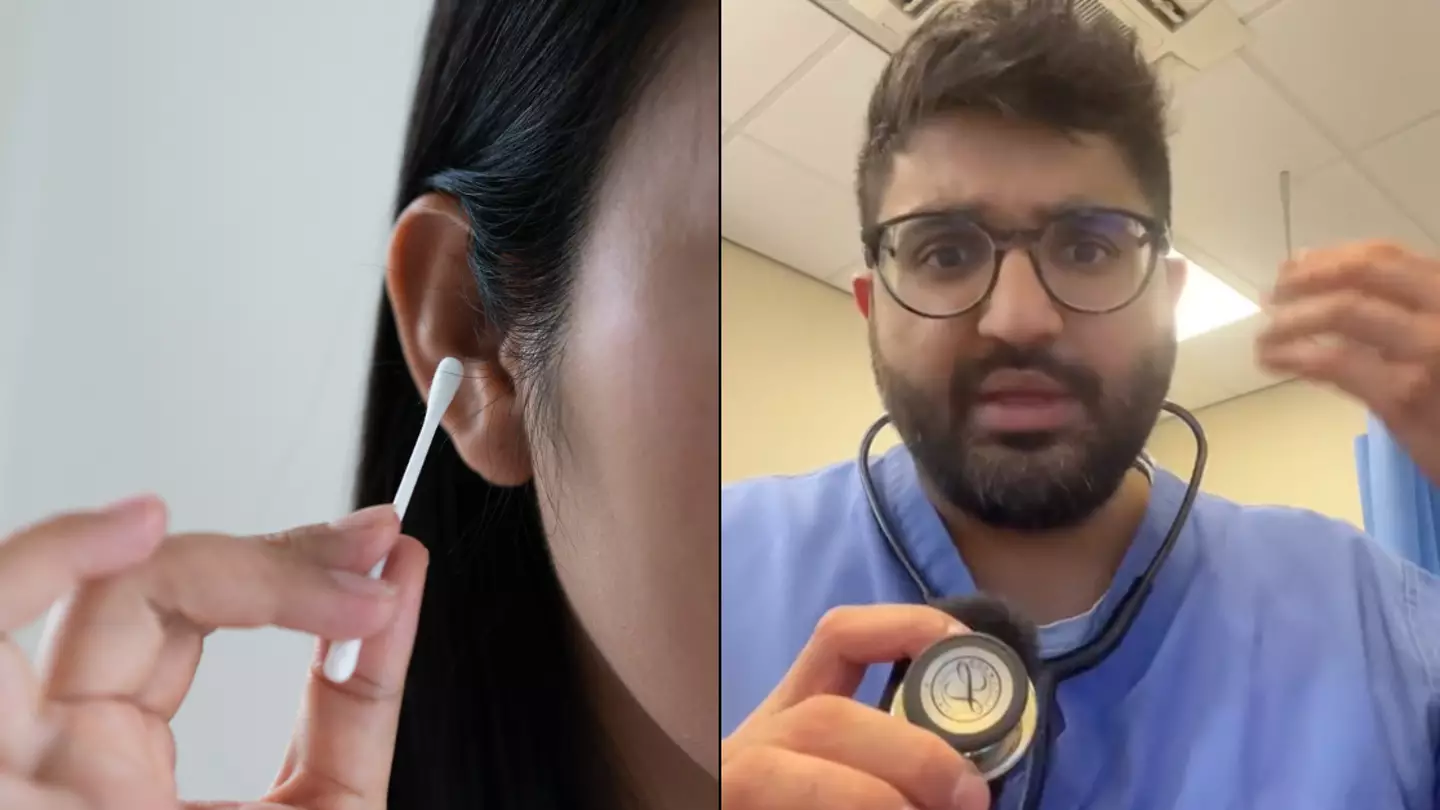
A doctor has issued a warning to all the people who still clean the inside of their ears with cotton buds.
By now it should come as no surprise that sticking the tip of cotton bud down your ear and scraping around for bits of wax isn’t a good idea. And yet… we all still do it anyway. Despite countless warnings from doctors and healthcare experts.
After all, what else would you use a cotton bud – which is even referred to as an ‘ear bud’ by many – for if you’re not using it to scoop wax out?
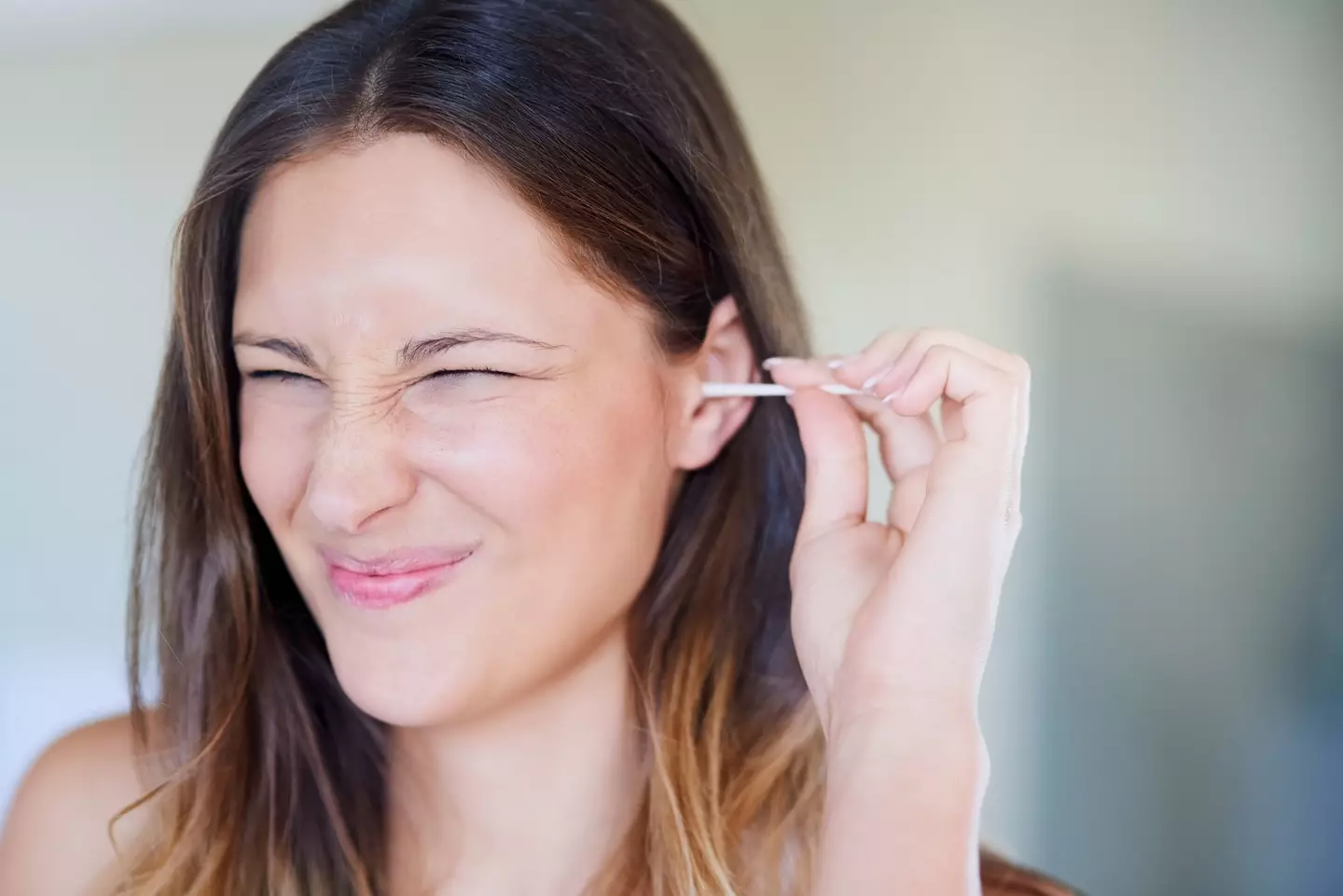
We’re all guilty of it (Getty Stock Images)
For those who are still guilty of cleaning inside their ears with a cotton bud, here is your thousandth reminder about why it could be damaging to your health.
Sharing the PSA on Instagram, GP Dr Amir Khan – who makes regular appearances on ITV shows such as Lorraine and Good Morning Britain – explained why the common grooming technique is harmful.
“One thing I never advise is the use of cotton bud sticks to clean the ears,” he said.
“It may feel good to stick a cotton bud inside of your ear and it may come out with a little bit of wax on which makes you feel like you’ve cleaned it, but all you’ve done is push that wax further down your ear.
“Which risks the wax completely blocking the ear, or worse, damaging the drum.”
https://www.instagram.com/reel/DDr-gmvM3Fq/embed/?cr=1&v=14&rd=https%3A%2F%2Fwww.ladbible.com&rp=%2Fnews%2Fhealth%2Fdoctor-issues-cotton-bud-ear-cleaning-warning-962030-20241228%3Ffbclid%3DIwZXh0bgNhZW0CMTAAAR3_DWTr2hHOmlwGTqJXcAX1-QoNAn92y7ia1gmeHNnV1aMayEr7BJQKwRk_aem_x0JcQQsv4evwSSAO4NC1qQ#%7B%22ci%22%3A1%2C%22os%22%3A11438.099999904633%2C%22ls%22%3A588.8999999761581%2C%22le%22%3A1297%7D
Dr Khan then went on to explain the risks of perforating your eardrum, as well as having to fish bits of broken cotton buds out of patients ears in the past.
“Cotton bud sticks are not for your ears and they’re terrible for the environment,” he added in the caption.
“I know it might feel satisfying but you could be doing more harm than good!”
Viewers were naturally torn in the comment section, with several people agreeing with Dr Khan’s advice while others seemed unwilling to break the habit.
“It’s the only way to reach that itch though,” one person protested, while a second joked: “But Amir….it feels so niiice.”
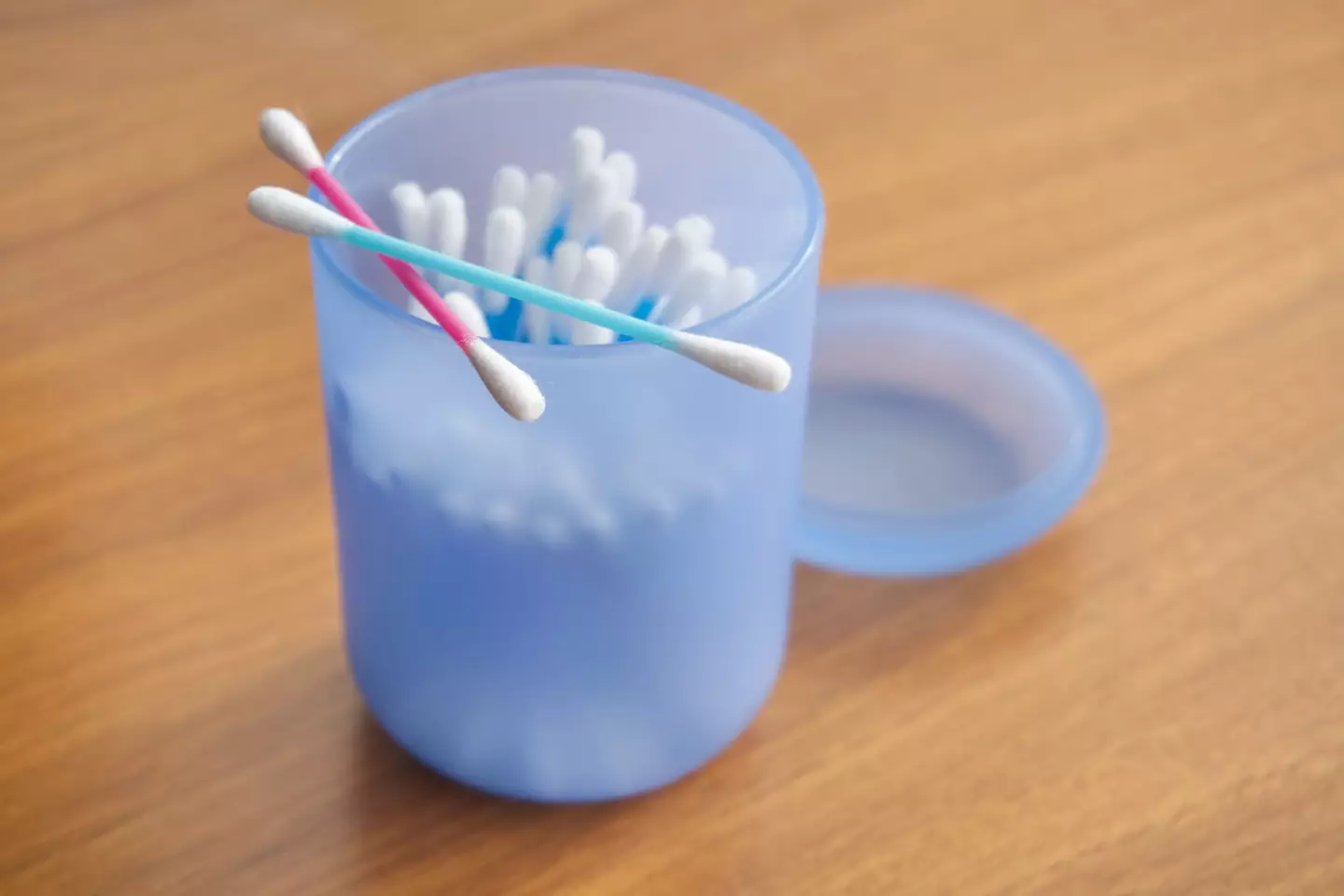
It’s time to say goodbye to the cotton buds (Getty Stock Images)
If you’re looking for doctor approved ways to remove any ear wax buildup, advice from the NHS suggests using ‘2 to 3 drops of olive or almond oil in your ear’ and lying on your side for five to 10 minutes with the affected ear facing up.
Should ear wax problems persist, you can also seek advice and treatment from your local pharmacist.
And whatever you do, keep away from the cotton buds.Featured Image Credit: Getty Stock Image
Topics: Health

Brenna Cooper
Advert
Advert
Advert

Published 14:32 1 Jul 2024 GMT+1
Doctor reveals why you should never clean your ears with cotton buds and offers safer alternative
Dr Sooj urged people to stop shoving cotton buds down their lugholes

Sticking a cotton bud down your ear and giving it a good old clean is one of the simple pleasures in life – but if you ask a doctor, it’s one of the worst things you can do.
You might think it’s a harmless way to maintain good hygiene inside your lugholes, however, medics warn that this actually does more harm than good.
Dr Suraj Kukadia, who is better known online as Dr Sooj, regularly shares videos on social media educating people on their health – such as the five signs that a mole could be cancerous and what that weird ‘shooting pain’ you might occasionally get in your bum is all about.
Now, the GP from Hertfordshire has moved onto discussing our ears and the dangers of shoving a cotton bud down them.
In a TikTok clip, he explained: “How do you clean your ears routinely in a safe way?
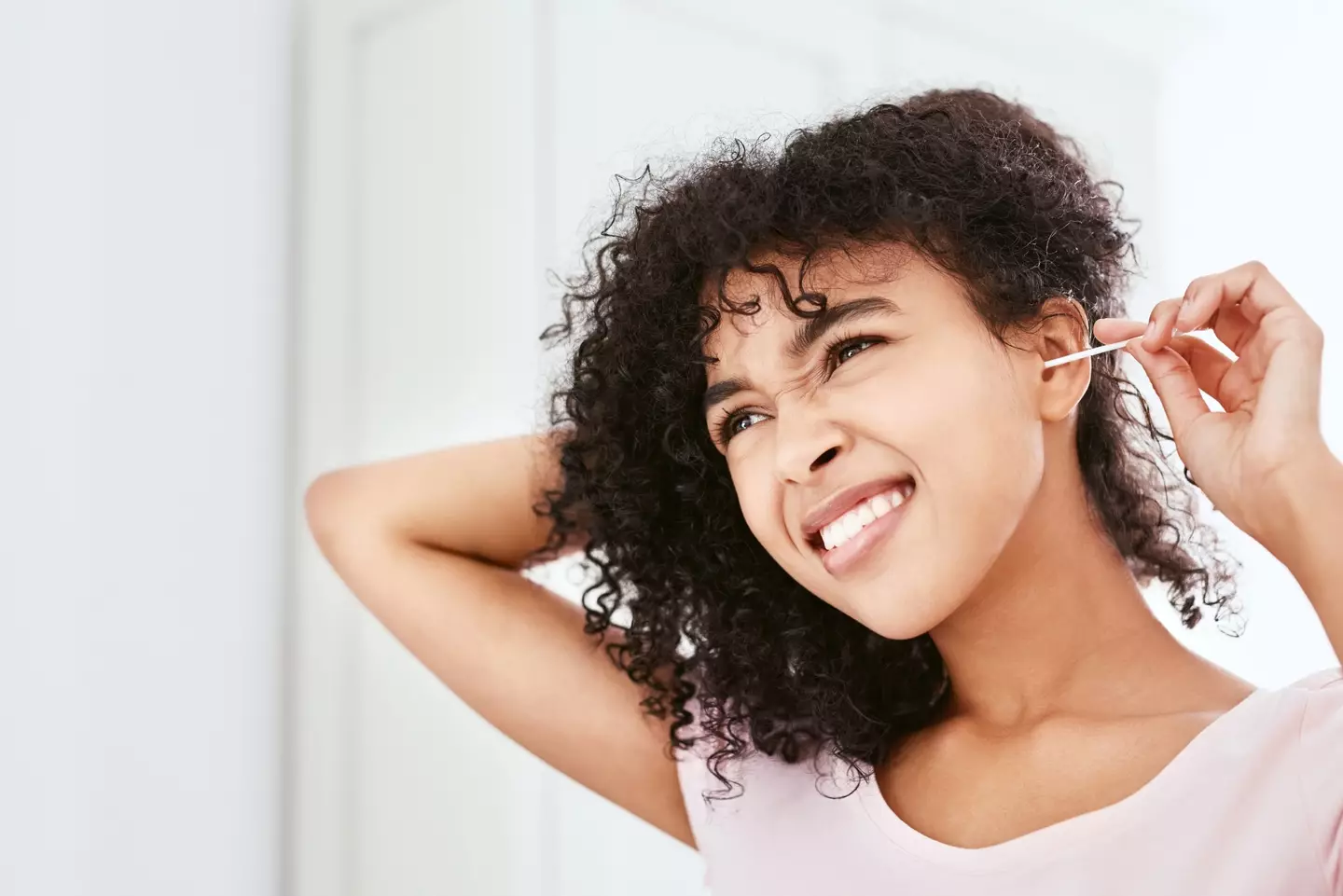
Dr Sooj says the best way to clean your ears is to…not clean them (Getty Stock Photo)
“The answer to this is very, very simple – you do not,” Dr Sooj said. “Don’t go inside your ears. Don’t put anything smaller than your elbows in your ears or in your nose.
“The reason for this is that your ears are self-cleaning, earwax has a protective function. It helps to catch microorganisms, it helps to catch dirt and it’s designed to protect your eardrum.”
Dr Sooj said that some people can experience ‘excessive wax production’, but trying to get rid of it yourself is a bad idea.
The medic continued: “If you start shoving stuff into your ear to try and get it out – like Q tips or cotton buds – you’re going to be inadvertently pushing that wax up against the eardrum.
“In really unfortunate cases, you might even burst your eardrum and that is a situation you do not want to be in. So, what we recommend is, you don’t touch your ears.”

The GP warned that sticking a cotton bud down your lugholes can do serious damage (TikTok/@doctorsooj)
As someone who has experienced a burst eardrum myself, I can confirm it’s no walk in the park. Sheer agony might be the best way to describe it.
Anyway, Dr Sooj said that cleaning the outside of your ears is fine, but inside the canal is completely off limits.
Otherwise, it can cause some very unfortunate consequences.
He warned: “When earwax does get impacted against the eardrum, it can cause things like tinnitus or ringing in your ears.
“It can cause dizziness, nausea, vomiting and even muffled or reduced hearing.
“If you have any problems, just go and see your doctor because we can very easily check the inside of your ears, tell you if some wax is there and give you some simple steps to try and resolve it if it is.”
We know you’ve heard it all before, but just to hammer it home one more time – cotton buds are NOT for cleaning the inside of your ears.
Even Dr Sooj said so!Featured Image Credit: Getty Stock Photo/TikTok/doctorsooj

Olivia Burke
Advert
Advert
Advert
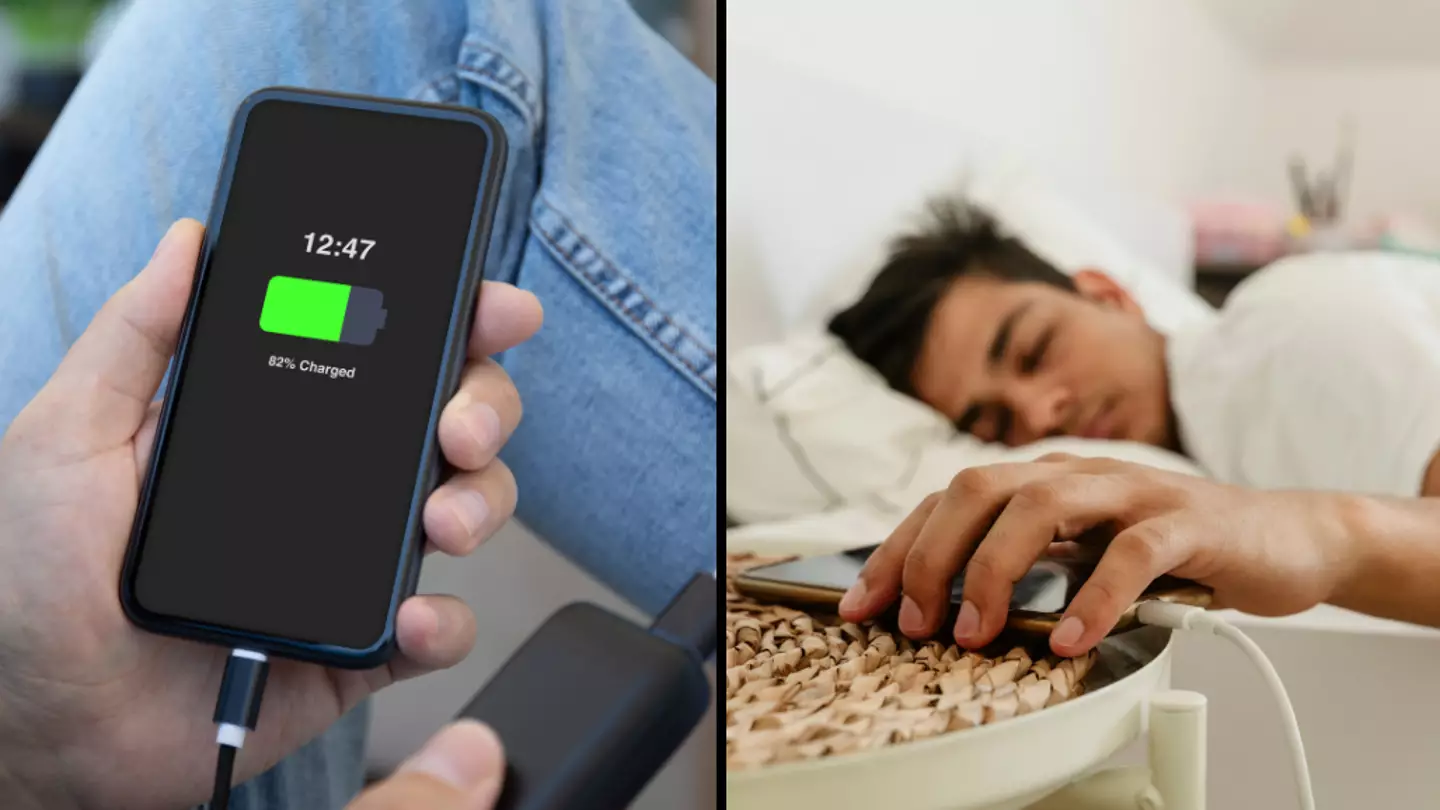
Updated 10:41 15 Jul 2024 GMT+1Published 10:42 15 Jul 2024 GMT+1
Tech expert reveals why you should never charge your phone overnight
Whether you have an iPhone or Samsung Galaxy, the damage is the same regardless of the device

It is an act millions of us do every single evening, but one tech expert has explained why you should never charge your iPhone or Android smartphones overnight.
We’ve all been there. Your phone is on five percent as you chill on the sofa after a long day at work, before you watch a bit of Netflix after it finally dies out, knowing you’ll plug it in overnight ready for the next day ahead.
Ex-Microsoft CEO’s reaction to iPhone launch
Credit: X/@historyinmemes
0 seconds of 40 secondsVolume 90%
But it isn’t the best way to charge your phone. Like, not even close to being the way you should be topping up the battery.
And it is a little more than that, with the idea of letting your phone completely die out before being pumped back up to the max one of the worst things you can do with the handset, too.
One tech expert, Max Freeman-Mills, revealed why you should avoid charging your phone overnight. And while saying it isn’t ‘criminally’ bad if you, for example, do plug it in from midnight to 7am, if you can, aim to charge it at other points and locations during your day.
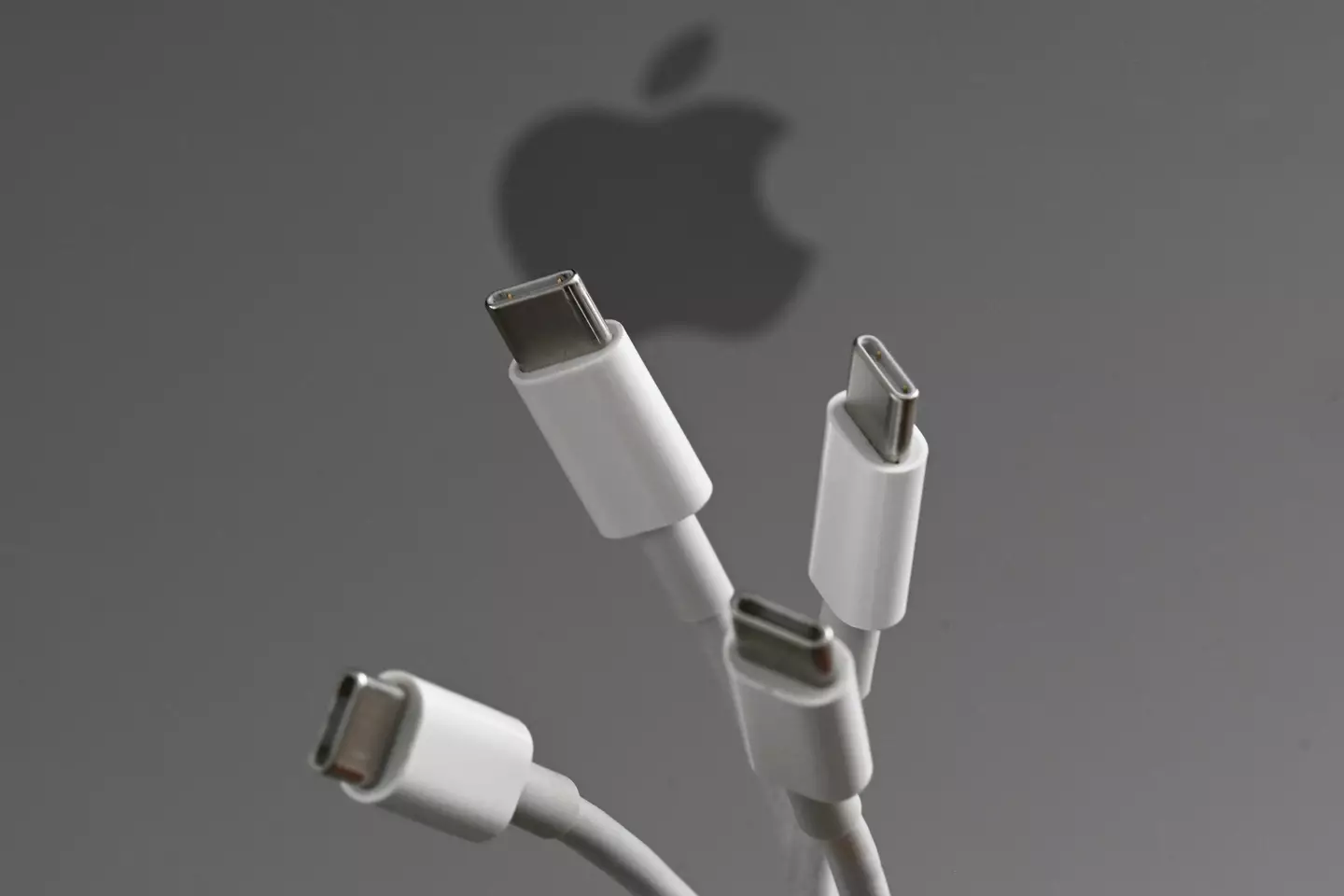
Charging overnight? Avoid if you can (Getty Stock Images)
The reason for this is the battery that is inside the vast majority of smartphones and how that device works best.
In an article with the Press Association, he said: “Millions of us probably all charge our phones the same way – plugging them in when we go to sleep, then unplugging them in the morning.
“While this isn’t criminally bad, it’s not necessarily the best way to charge where battery performance is concerned.
“Lithium-ion batteries, which the overwhelming majority of phones use, actually degrade more quickly if they’re regularly charged to their absolute maximum and then drained to completely empty. A much healthier situation for them is if they bounce between being nearly empty and nearly full – so you don’t want to leave them on fully charged for too long (like the second half of each night’s sleep).”
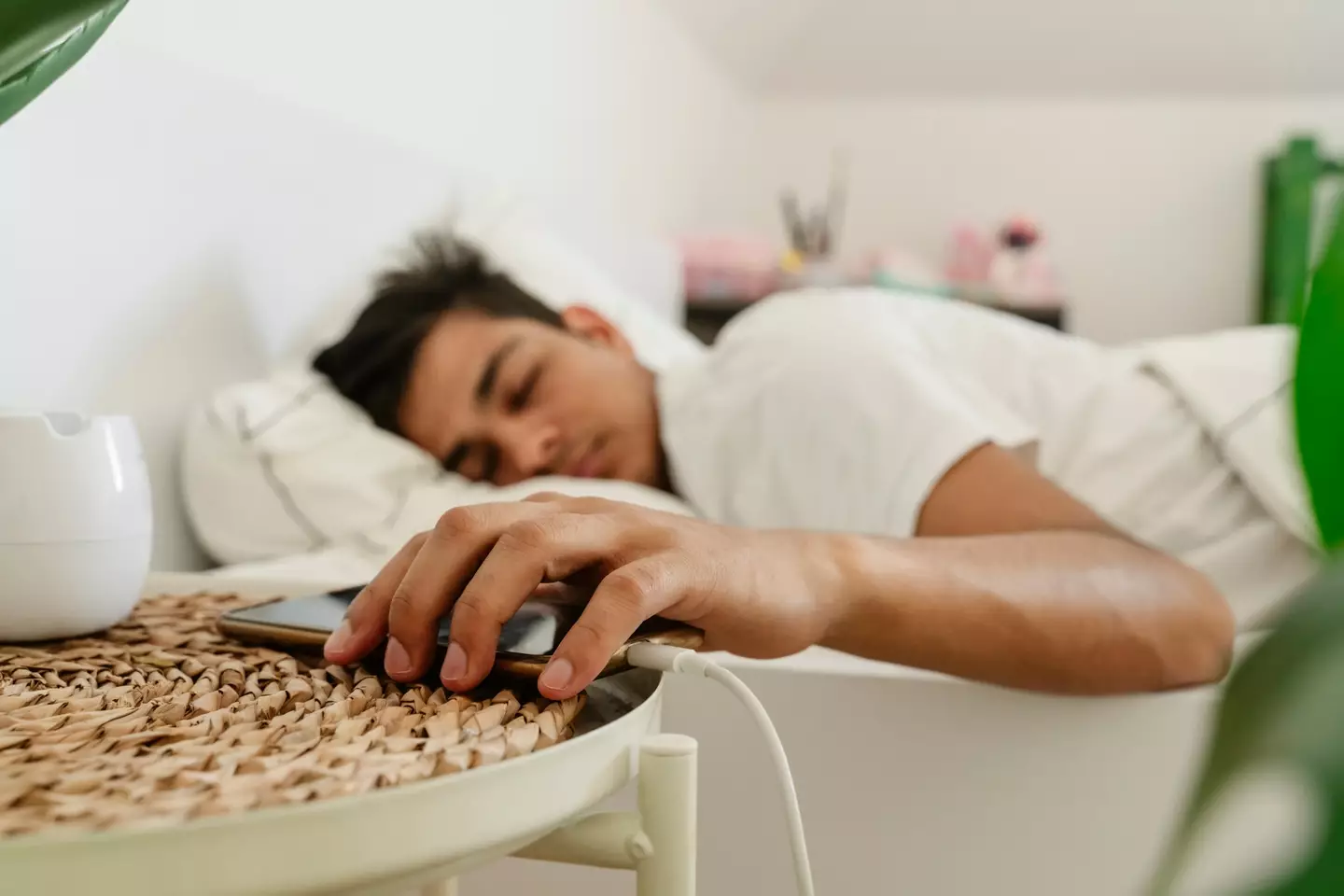
We’ve all been there (Getty Stock Images)
He added: “iPhones and many Android phones now have charging smarts built-in to alleviate this problem by pausing charging until just before you get up, but you can help this by charging more consciously – for example, at your desk while you work in the morning, rather than overnight.”
The lithium-ion batteries that power smartphones degrade due to a number of reasons including their charging patterns, temperature changes, and the time they’ve used for.
So, when a phone is plugged in overnight, it means that the phone is getting an unnecessary boost. If you plug it in four an eight hour kip, it’ll be charging for roughly four times as long as it needs.
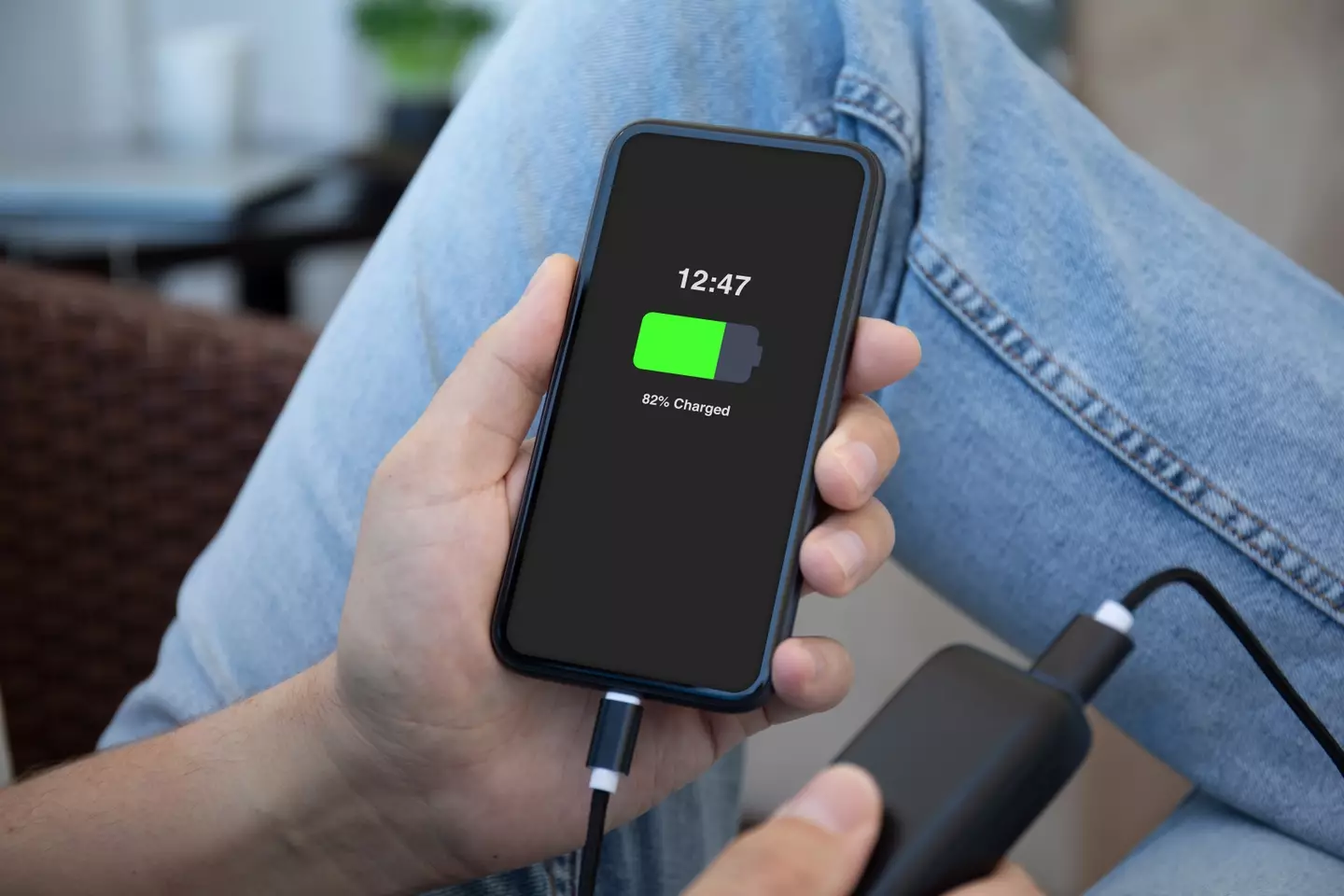
Letting your phone battery die before pumping it right back up to 100% isn’t advisable (Getty Stock Images)
It’s also not the best from a safety point of view. While most phones will stop charging once they reach 100 percent battery to prevent overheating, you are likely to have numerous apps that are still running in the background.
The battery will therefore keep dropping to 99 percent before being topped up in something called ‘trickle charging’, which can can wear a battery down over time.
Ritesh Chugh, an associate professor in Information and Communications Technology at CQUniversity Australia, has previously said: “Trickle charging can wear a battery down over time. That’s why many manufacturers have features to regulate it.
Apple’s iPhones offer functionality to delay charging past 80 per cent. Samsung’s Galaxy phones provide the option to cap the charge at 85 percent.”Featured Image Credit: Getty Stock Images
Topics: Technology, Phones, iPhone, Samsung, News, Sleep

Tom Earnshaw
Advert
Advert
Advert

Published 14:57 17 Dec 2024 GMT
Why you hear your heartbeat when you lie on your pillow at night and when to be concerned
So why do we hear a constant rhythmic thudding in our pillows every night?

Have you ever jumped into bed after a long day, rolled onto your side and noticed rhythmic thudding noise as you’re trying to drift off?
Well you wouldn’t be the only one – but why does this noise happen and is it anything to be concerned about?
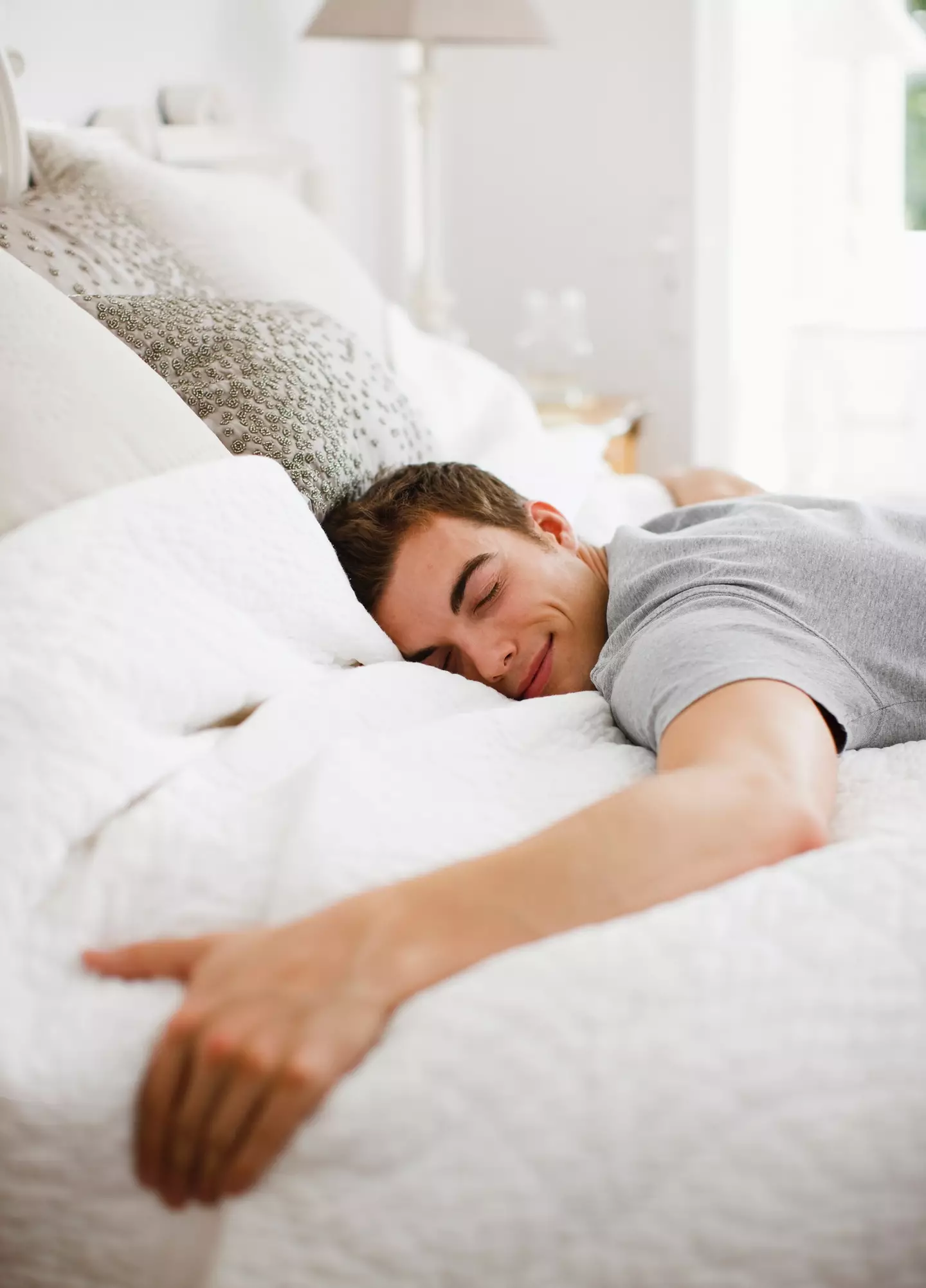
Have you ever been unsettled by the sound while trying to fall asleep? (Getty Stock Image)
Why can you hear your heartbeat when lying on your side?
The first thing to note about hearing your pulse while lying on your side is that it’s totally normal.
Explaining the phenomena in a recent TikTok video is US surgeon Dr Anthony Youn, who likened the noise to the bass being turned up ‘too loud’ in your pillow, he said: “If, every once in a while, you’re lying on your side and you hear your heart beating, it’s most likely your carotid artery basically sitting against your pillow.”
READ MORE:
REASONS YOU CAN WAKE UP WITH HEART PALPITATIONS IN THE NIGHT AND HOW TO TELL IF THEY’RE MORE SERIOUS
MILITARY SLEEP METHOD CAN SEND PEOPLE TO SLEEP IN ‘TWO MINUTES’
The carotid arteries are one of the heart’s major blood vessels which sit on either side of our neck and pass by the inside of our ears. They are responsible for supplying blood to our head, face and neck.
When you lie on your side the carotid artery is basically against your pillow, meaning the thudding noise is just your body doing its job in keeping you alive and well.
So completely normal and nothing to worry about, right?
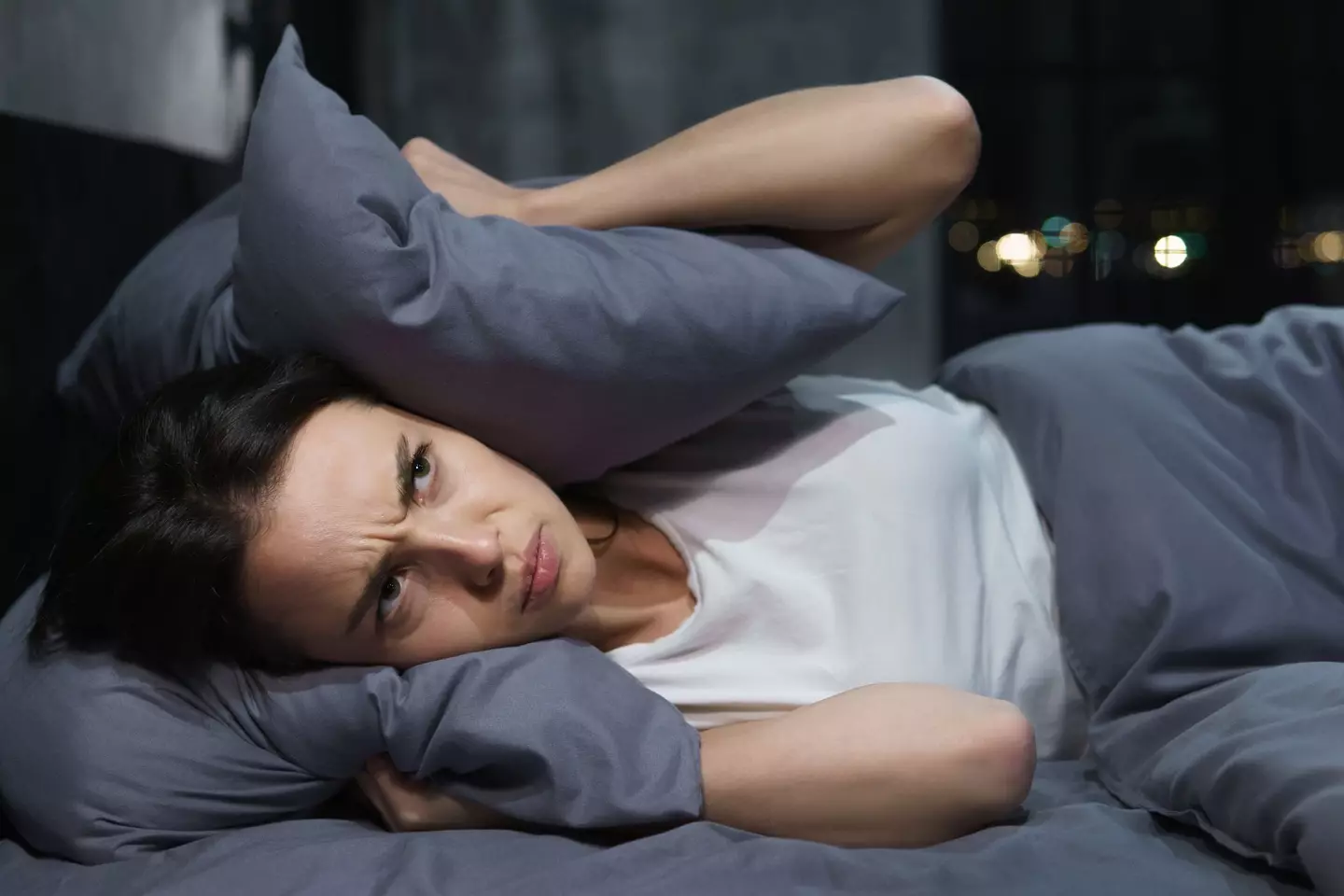
Constantly hearing a whooshing noise in the ear could be a sign of pulsatile tinnitus (Getty Stock Image)
Should I be concerned about hearing my heartbeat in my ears?
Dr Youn goes on to explain that being able to hear your heartbeat all the time while lying on your side or when standing up could be a sign of a condition called pulsatile tinnitus.
According to Tinnitus UK, pulsatile tinnitus is a when a ‘rhythmical noise’ can be heard in either the head, ears or both regions which typically matches your heartbeat.
Dr Youn adds that pulsatile tinnitus is ‘usually benign, there are some potentially concerning causes, so it’s best to see your doctor’.
The charity states that pulsatile tinnitus can be caused by a number of things, typically a change of blood flow in the vessels surrounding the ears. This can be caused by anything from tumours of the head and neck, elevated blood pressure as well as pregnancy, anaemia and hyperthyroidism.
Harvard Health states that ‘most of the time, pulsatile tinnitus is nothing to worry about’. However if you find yourself particularly concerned about your symptoms there’s nothing wrong in getting checked out by your GP.Featured Image Credit: Getty Stock Images

Brenna Cooper
Advert
Advert
Advert
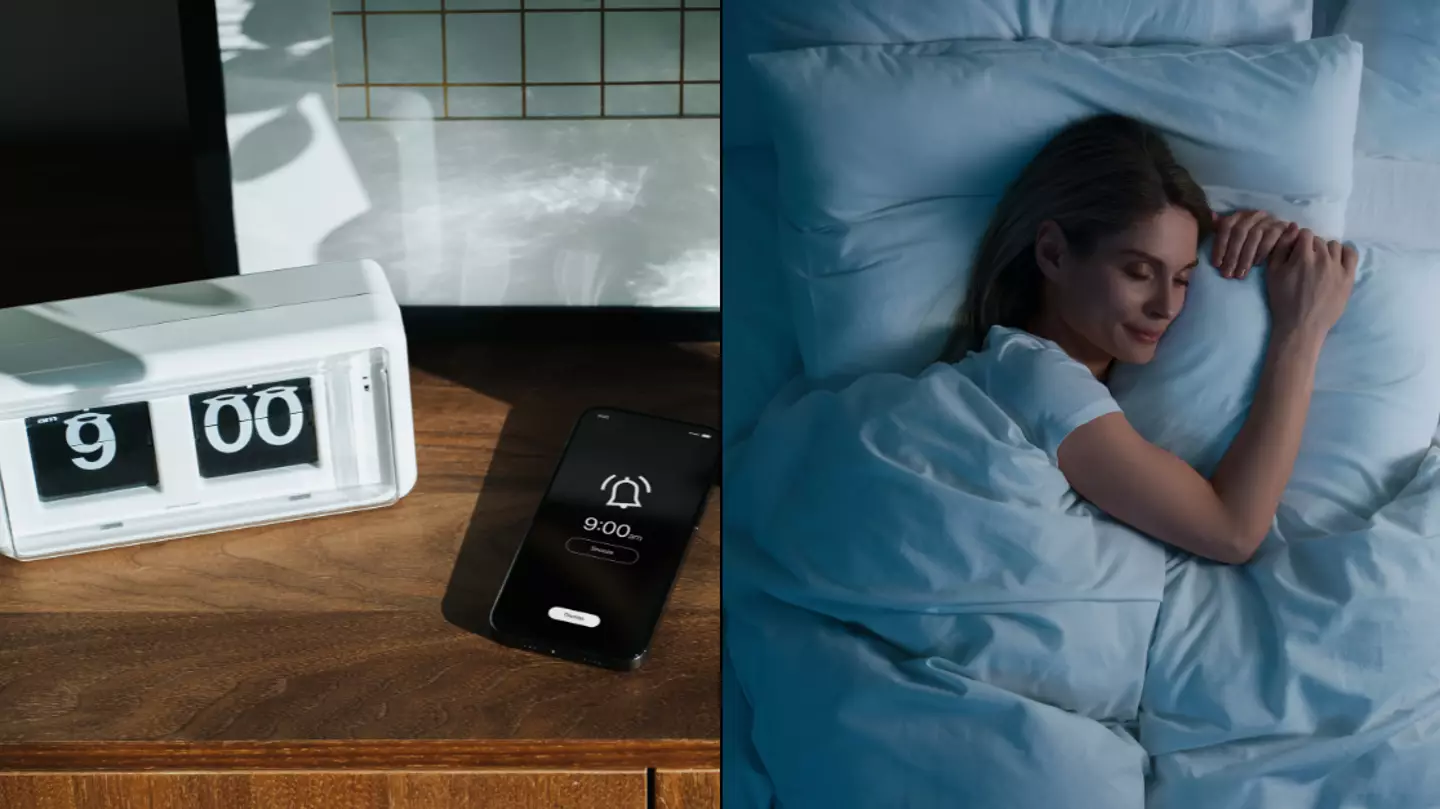
Published 17:43 3 Aug 2024 GMT+1
Sleep expert reveals why you should never set an alarm on a weekend
The snoozing guru has revealed how you can snooze your alarm guilt-free

When the end of the working week rolls around, most of us can’t wait to rest and recharge for a couple of days.
We say that though…and end up straight in the pub right after we’ve clocked off, before stumbling in at a godforsaken hour the following morning.
Why you need to sleep between 10pm and 4am
Credit: Diary of A CEO
0 seconds of 1 minute, 36 secondsVolume 90%
And if the hangover doesn’t leave us bed bound, you can put money on the fact that we will probably do it all again on Saturday night too. So much for a relaxing couple of days off work, eh?
The beauty of this British pastime, though, is that we can all let loose without clock-watching throughout the entire evening while worrying about how many hours you have got until your alarm goes off.
Unless you’ve got somewhere important to be – or a boozy bottomless brunch you need to be on time for – there’s no need to rush out of bed in the morning,
And according to this expert, abandoning your alarm clock for the weekend is the only way that you will feel the benefit of having a few days off from the rat race we call life – although she doesn’t recommend the two day bender.
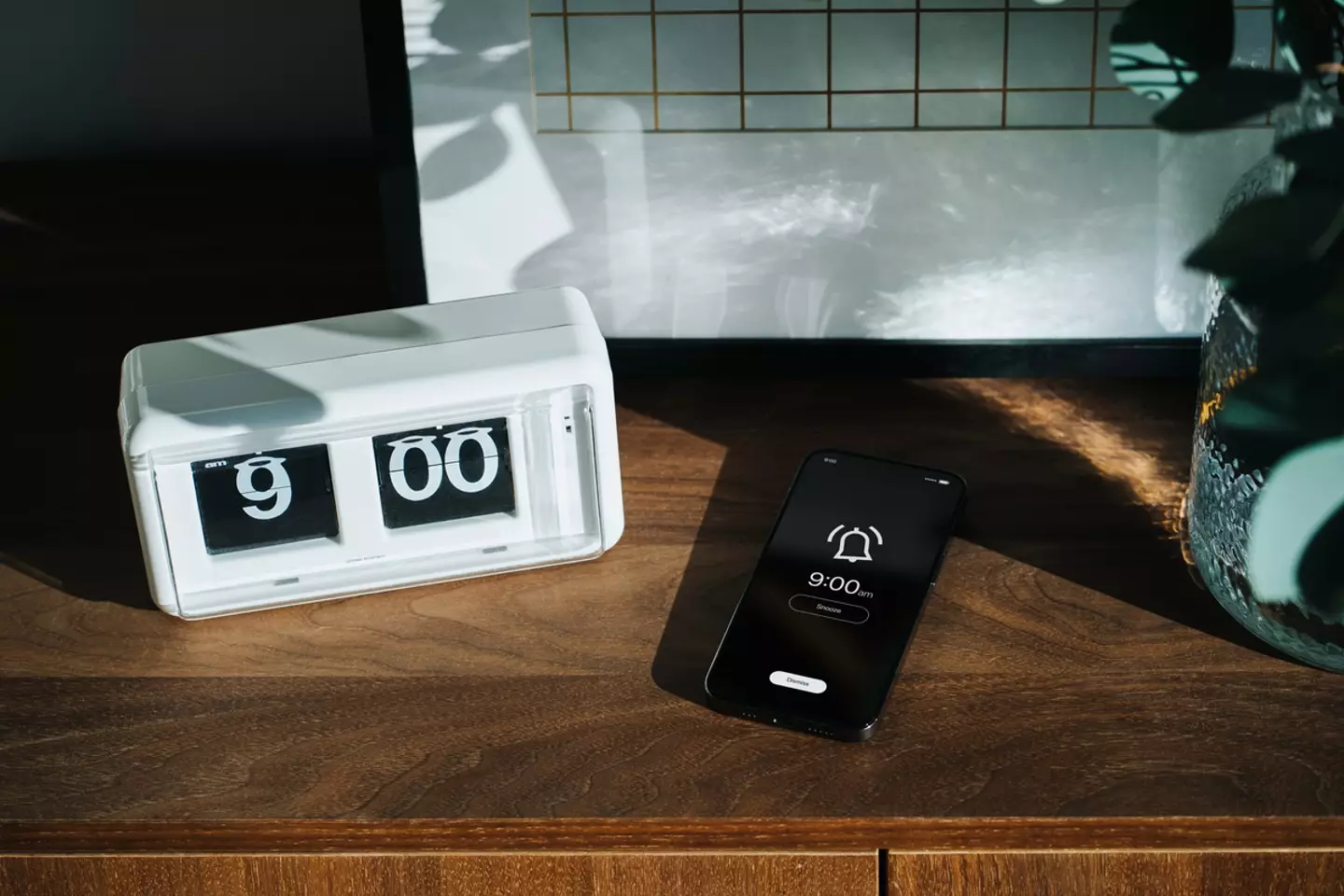
This sleep expert urged people not to set their alarm clocks over the weekend (Getty Stock Image)
Lisa Artis, Deputy CEO of The Sleep Charity in Doncaster, explained that you are probably making life a lot harder for yourself by getting legless on a weekend instead of just having a chilled one.
Despite the fact you might get a second wind on a Friday evening after an early get up and a long day at work, the snoozing expert said that you are actually ending up in ‘sleep debt‘.
Unfortunately, she reckons that this will have a knock-on effect throughout at least the next week – and your brain will still be playing catchup by the time the following weekend rolls around.
Sharing her advice for a rejuvenating ritual for the end of the working week, Lisa told the Daily Mail: “Taking it easy on the weekend may sound boring, but it does your body a world of good – especially when it comes to sleep.
“We operate on a roughly 24-hour cycle called the circadian rhythm, regulated by the suprachiasmatic nucleus in the hypothalamus.
“Maintaining a regular sleeping pattern on the weekend, i.e. not going out drinking and partying till the break of dawn, preserves this cycle, allowing the body to recharge as normal.”
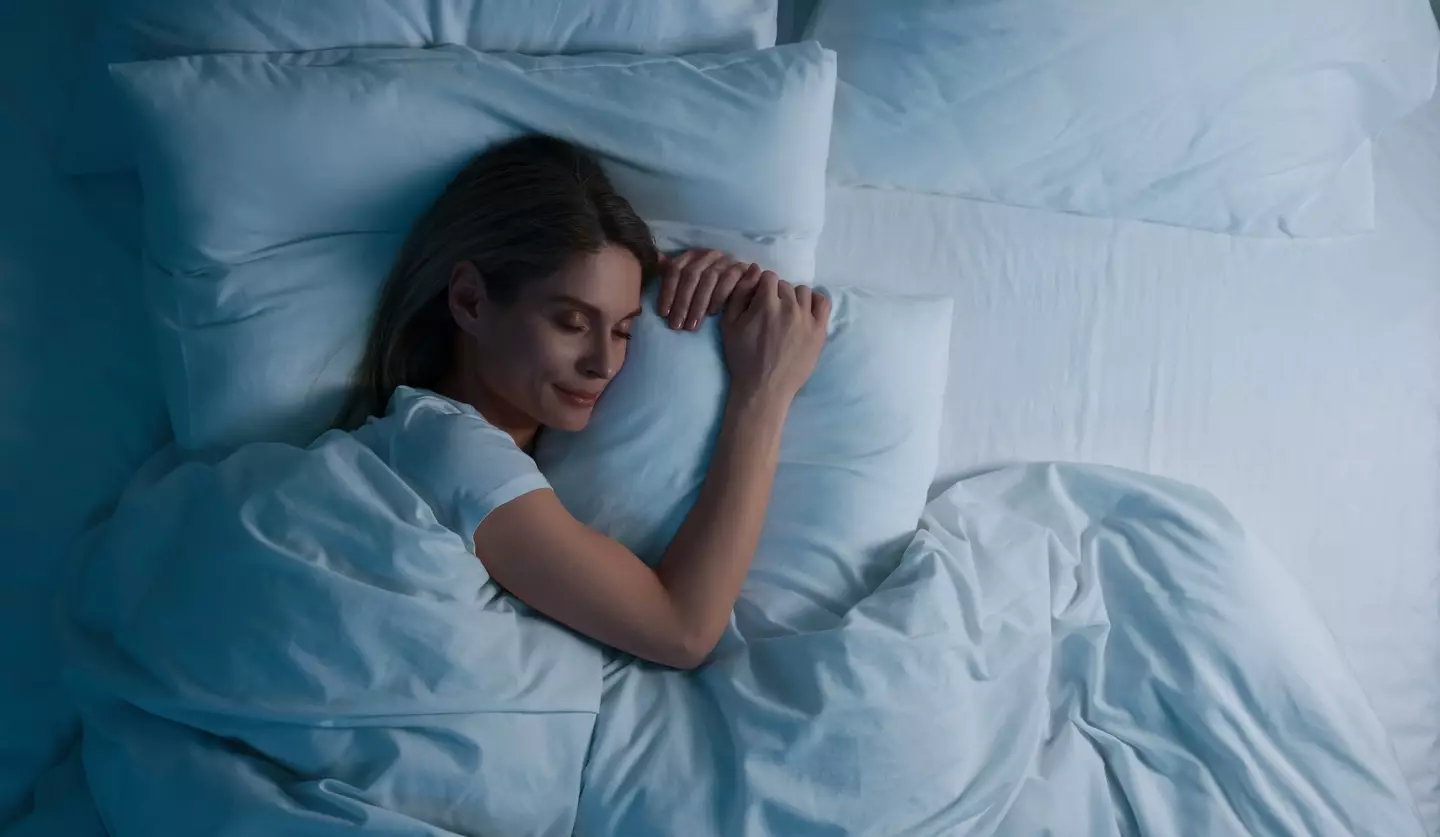
Lisa Artis says the only way you can feel recharged is by making sure you have uninterrupted sleep (Getty Stock Image)
There is another crucial component which will ensure your body has a chance to relax properly too – uninterrupted sleep.
Lisa explained that you are best off switching your alarm off on Saturdays and Sundays to enjoy the perks of a lie in.
She added: “With quality, uninterrupted sleep with no alarm and a restful few days, you’ll go to work on Monday feeling refreshed and ready for the week.
“In contrast, living for the weekend, staying up late and piling up sleep debt leads to increased adenosine levels – the chemical in the brain that makes us tired.
“And with work looming, there’s not enough time to recover before the week starts again. Adenosine levels will remain high until we get our sleep cycle back on track.”
She warned that this can make the work feel ‘more difficult’ when you return on a Monday morning – so maybe choose snoozing your alarm over Sambuca in future.